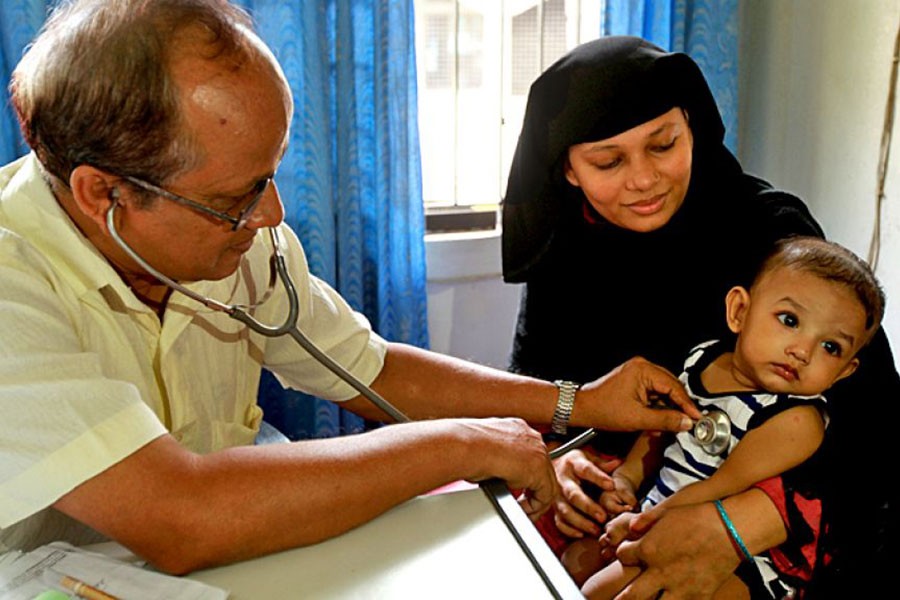Prime Minister Sheikh Hasina has once again expressed her frustration over the inferior quality of health service rendered in the country. She has posed the question: if countries like Singapore, Thailand and India can provide better healthcare, why should Bangladesh lag behind? What she is referring to is specialised medical care. The top government hospitals are carrying a legacy of the past. Also the number of patients these hospitals have to admit is well beyond the acceptable limit. When patients have to lie in corridors and balconies of hospitals, it is impossible for doctors to maintain the standard of care for all. On that count, the physicians are doing a wonderful job. Poor patients cannot afford the cost of the handful of well maintained private health facilities. The rest of the private hospitals run without their own specialised physicians and required facilities.
Admittedly, the country's health service has a long way to go before it reaches the international standard. Where does the fault lie then? The physician-patient ratio is not in favour of a healthcare accessible to all. However, this is not a particular problem with Bangladesh, many countries in Asia and Africa with a far smaller population size face this crisis. The more important question is whether with the existing healthcare facilities and physicians employed there, the people are enjoying the service they were supposed to do. Here the answer is a big No. The government has established health complexes at the upazila level and maternity clinics at the grass-roots level. But sadly, this process of healthcare extension has been frustrated by physicians who mostly opt for stay away from their duty stations. Again, the facilities for pathological and other tests are either non-functional or very limited.
In the absence of decentralisation of better healthcare there is heavy rush in the capital's government hospitals. There are at least the health consultants of the top order in these hospitals. But their service is divided between their rounds in government hospitals and private practice. In a situation like this, the standard of healthcare cannot be expected to rival that of the international order. What about fixing a pay package many times more than the current scale for the doctors so that they do not have to give time for private practice outside their workplace?
Improving the level of specialised healthcare is a different proposition from an arrangement of modest treatment in the health facilities in outreach areas. The former calls for research, experiment and collaboration with the best such facilities in the world. The upgrading of Shagbagh post-graduate hospital into the Bangabandhu Sheikh Mujib Medical University (BSMMU) has opened up an opportunity for such activities. But has it been followed up with the required guidelines and steps? On the other hand, to raise the overall standard of healthcare, more emphasis will have to be put on raising an army of skilled technicians, paramedics and nurses who know their job thoroughly. In their absence, healthcare service possibly suffers more than it does on account of highly qualified physicians.


